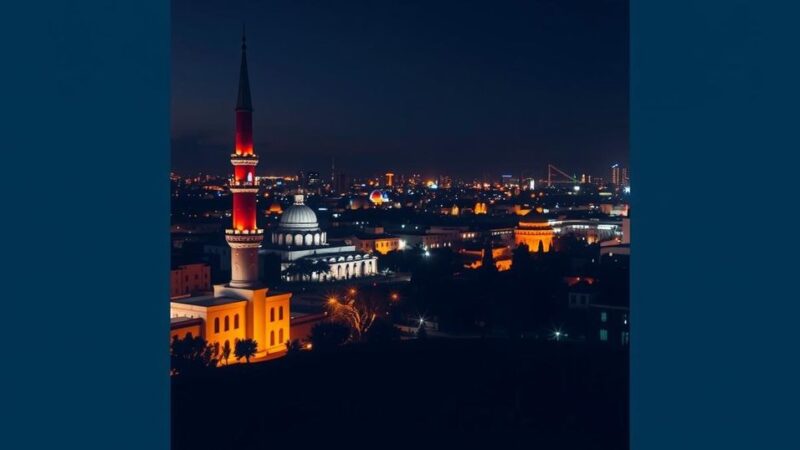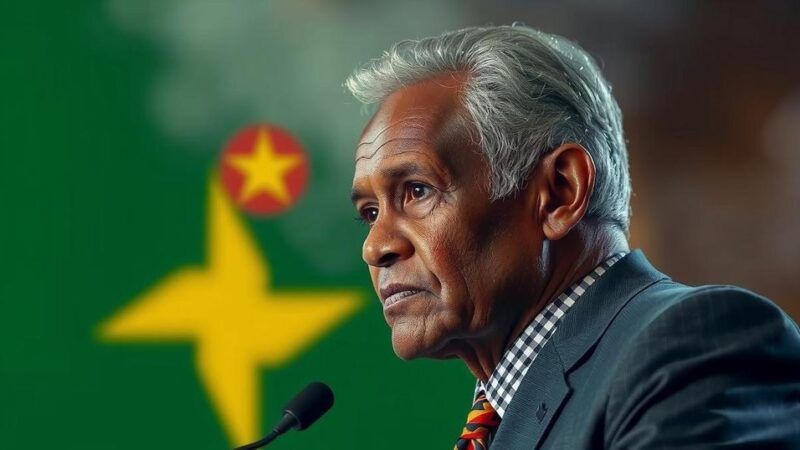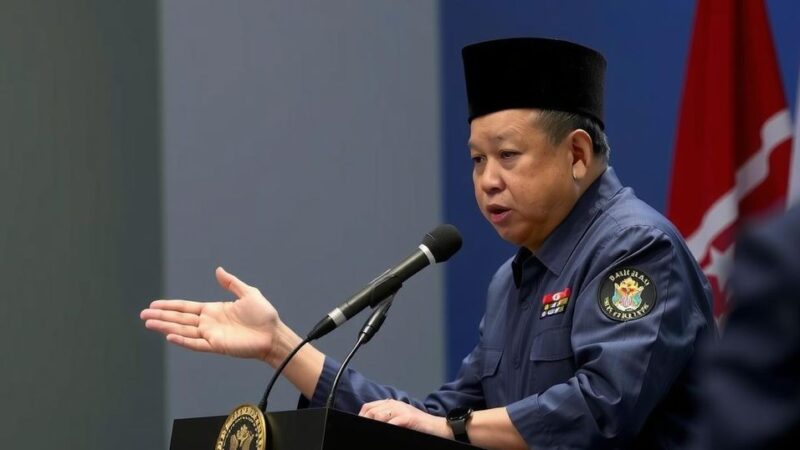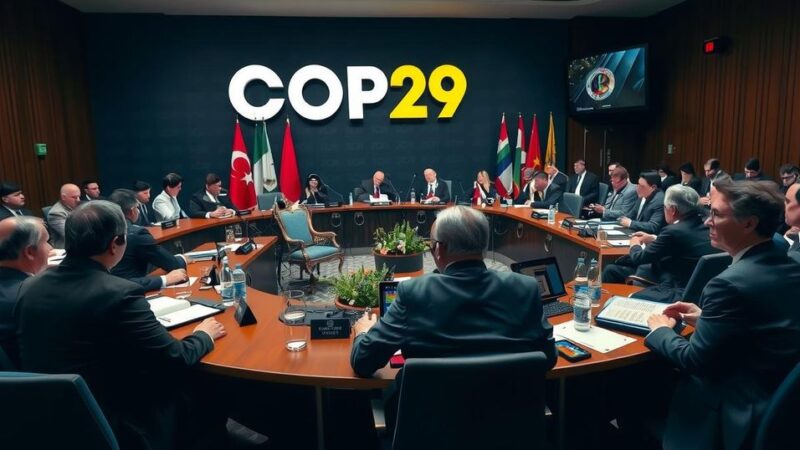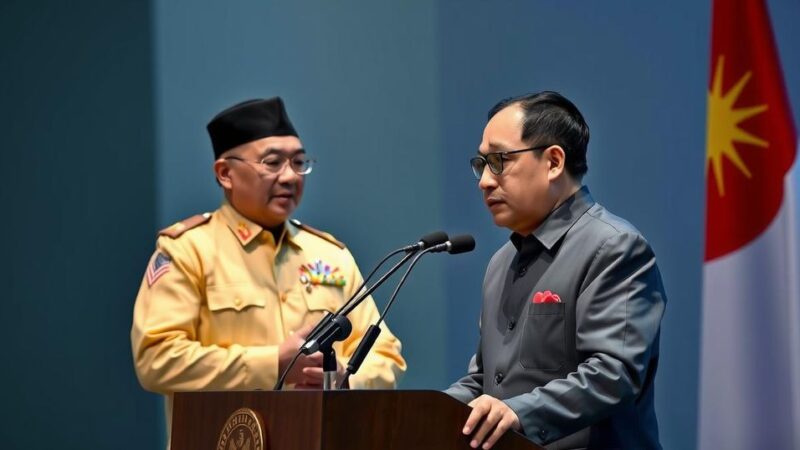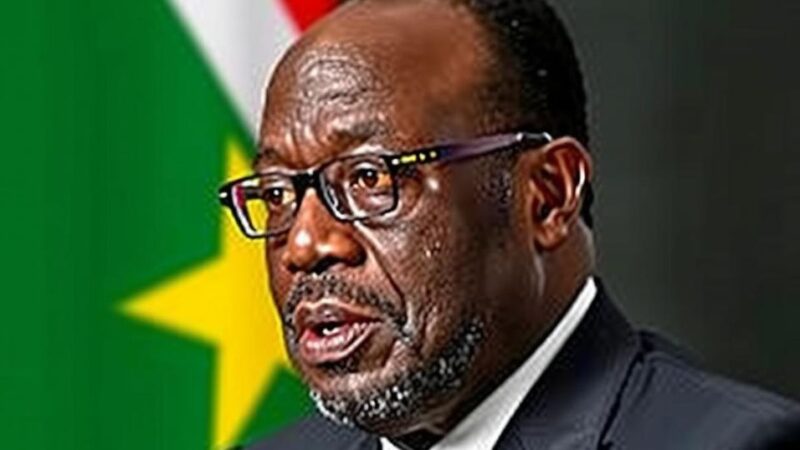Tensions are rising in the Horn of Africa as Egypt, Somalia, and Eritrea contemplate a collective security alliance against Ethiopia, prompted by Ethiopia’s controversial deal with Somaliland. This geopolitical shift coincides with ongoing turmoil from Ethiopia’s civil war and Somali internal conflict, raising concerns of proxy wars and regional instability. The formation of this alliance, while a diplomatic win for Egypt, could exacerbate existing conflicts and hinder governance in the region, highlighting the need for international attention.
Tensions are escalating in the Horn of Africa as Egypt, Somalia, and Eritrea engage in discussions aimed at establishing a collective security alliance against Ethiopia. This diplomatic shift, marked by a summit held in Asmara on October 10, 2024, presents grave implications for regional stability, as the leaders of these nations contemplate measures including military cooperation and potential economic sanctions against Ethiopia, which has been embroiled in a devastating civil war for over two years, claiming approximately 600,000 lives. Since August 2024, Egypt has solidified military cooperation and intelligence sharing agreements with Somalia, with similar accords anticipated with Eritrea. The collaborative efforts of President Isaias Afwerki, President Abdel Fattah al-Sisi, and President Hassan Sheikh Mohamud represent a strategic alignment that could reshape the geopolitical dynamics of the Horn of Africa. The underlying tensions primarily stem from Ethiopia’s controversial pact with Somaliland, a region that unilaterally declared its independence from Somalia in 1991. This agreement effectively grants Ethiopia access to the Red Sea via the Berbera port, a situation vehemently decried by Somalia and resented by Eritrea and Egypt. The ramifications of this deal are profound, as it may empower Ethiopia militarily by facilitating the establishment of a naval presence — an alarming prospect for both Eritrea and Somalia. Egypt’s long-standing tensions with Ethiopia, particularly concerning the Grand Ethiopian Renaissance Dam on the Nile, underscore its motivations in this alliance. Ethiopia’s potential bolstering of maritime capabilities could escalate fears of military engagement in the region—also detrimental to Eritrea’s interests. This emerging coalition marks a significant diplomatic victory for Egypt, albeit with limited benefits for Somalia and Eritrea beyond security assistance. Amidst these escalating tensions, internal conflicts exacerbate the turmoil. In Somalia, the militant group Al-Shabaab has gained traction, undermining the progress towards national stability, while the humanitarian crisis compounded by conflict in Tigray leaves millions at risk of famine. Eritrea remains isolated and heavily sanctioned, possibly seeking collaboration with Ethiopia to counter the Tigray threat rather than to engage in conflicts with its neighbor. This regional realignment raises concerns of potential proxy conflicts reminiscent of Cold War dynamics, as interests collide and rivalries deepen. The implications of these developments stretch beyond the immediate countries involved, affecting trade routes and global maritime security. As discussions regarding this nascent alliance progress, the established framework signals a precarious balance in the Horn of Africa, where either a deterrent against Ethiopia or a deterioration of relations may ensue. Ethiopia’s current restrained response, coupled with looming talks of Somaliland’s interactions with Ethiopian leadership, may precipitate further interventions from Egypt and its partners. In a world teetering on the edge of conflict, the Horn of Africa stands on the brink of instability, threatening to ignite a conflict of considerable scale, yet it remains markedly overlooked by the international community—an oversight that could have dire consequences.
The Horn of Africa has been marked by geopolitical strife and humanitarian crises, particularly due to Ethiopia’s escalating civil conflict, which has resulted in significant loss of life and widespread displacement. Concurrently, the region faces challenges from armed groups like Al-Shabaab and longstanding territorial disputes, particularly exemplified by Somaliland’s push for recognition. The intricate dynamics among Egypt, Somalia, Eritrea, and Ethiopia reflect the interplay of historical grievances, resource access issues, and rival aspirations, creating a complex security environment that necessitates heightened international attention.
The ongoing tensions among Egypt, Somalia, and Eritrea against Ethiopia represent a significant geopolitical shift in the Horn of Africa. As the region grapples with civil conflict, external pressures, and the potential for proxy wars, the formation of a collective security alliance poses both opportunities and challenges for regional stability. This development underscores the urgent need for the international community to engage with the Horn of Africa, as neglect may lead to escalated violence and humanitarian crises that could have far-reaching implications.
Original Source: www.orfonline.org

